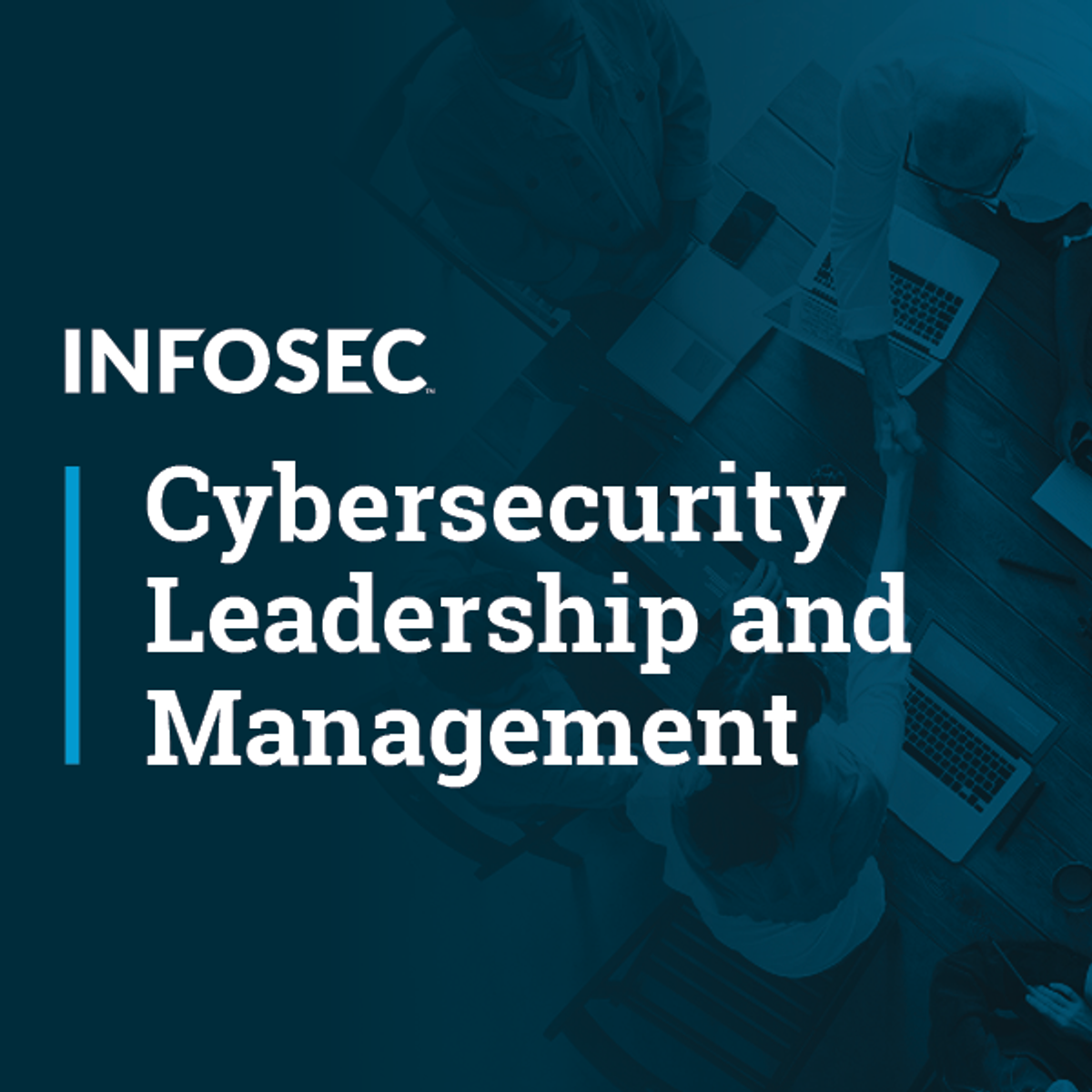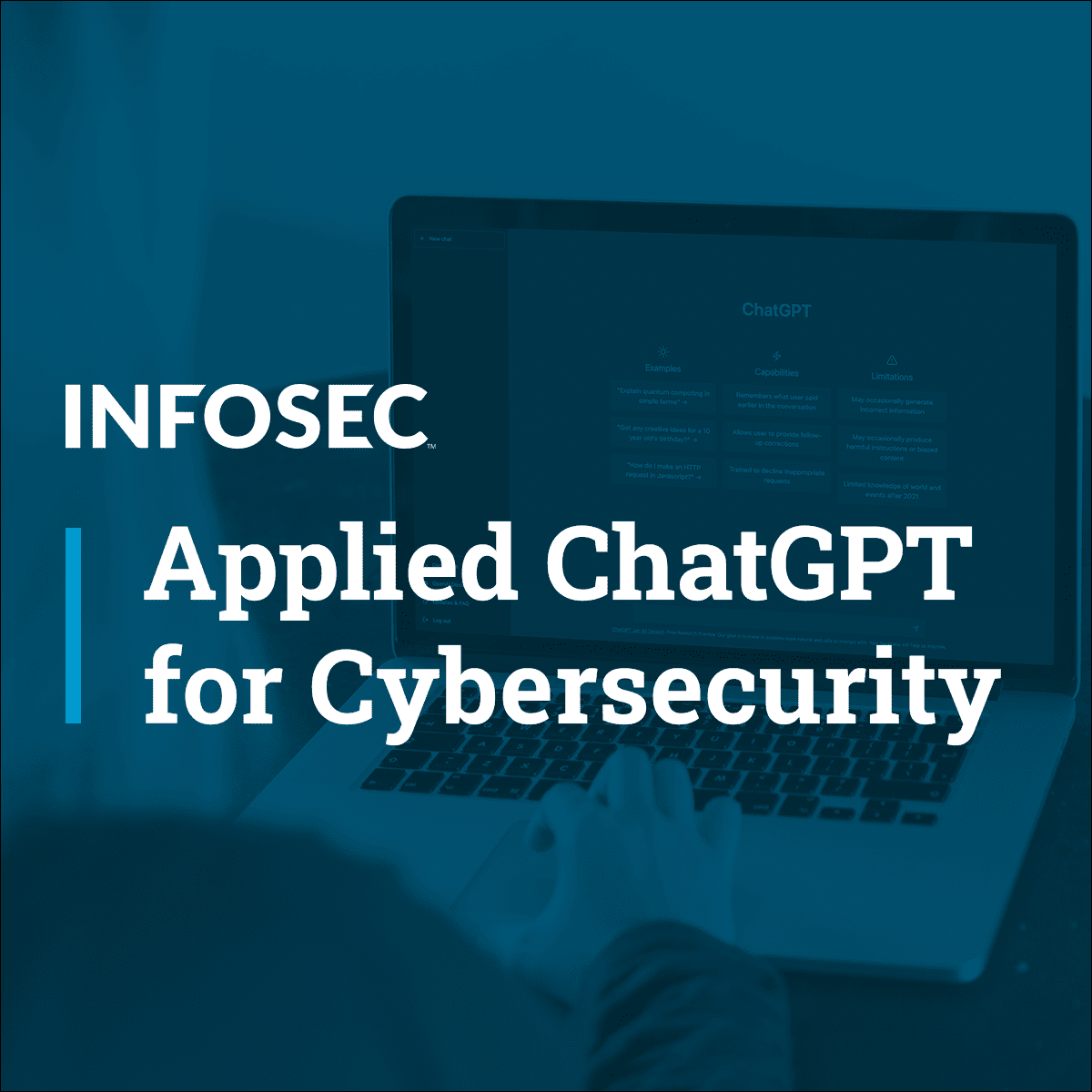Cybersecurity Manager
Cybersecurity Manager: A Comprehensive Career Guide
A Cybersecurity Manager plays a crucial role in safeguarding an organization's digital assets. They are the strategic leaders responsible for planning, implementing, and overseeing security measures to protect computer systems, networks, and data from cyber threats. This role involves a blend of technical expertise, strategic planning, and leadership to ensure the confidentiality, integrity, and availability of information.
Working as a Cybersecurity Manager can be highly engaging. You'll find yourself at the forefront of defending against evolving cyber threats, requiring constant learning and adaptation. The role offers the satisfaction of protecting critical infrastructure and sensitive data, making a tangible impact on organizational resilience. Furthermore, it involves strategic decision-making and leading teams, appealing to those who enjoy both technical challenges and management responsibilities.
Key Responsibilities of a Cybersecurity Manager
Understanding the day-to-day tasks and core duties of a Cybersecurity Manager is essential for anyone considering this career path. These responsibilities often require a blend of technical knowledge, strategic thinking, and strong interpersonal skills.
Risk Assessment and Mitigation Strategies
A primary function is identifying potential security vulnerabilities and threats to the organization's information systems. This involves conducting regular risk assessments, analyzing the potential impact of various threats, and evaluating existing security controls.
Based on these assessments, the Cybersecurity Manager develops and implements mitigation strategies. This might include recommending new security technologies, developing security policies and procedures, or enhancing existing controls to reduce risk to an acceptable level. The goal is proactive defense, minimizing the likelihood and impact of security breaches.
This process requires a deep understanding of the organization's technology infrastructure, business processes, and the evolving threat landscape. Staying informed about new vulnerabilities and attack vectors is crucial for effective risk management.
Incident Response and Disaster Recovery Planning
Despite preventative measures, security incidents can still occur. Cybersecurity Managers are responsible for developing and maintaining incident response plans (IRPs). These plans outline the steps to take when a security breach or cyberattack is detected, ensuring a swift and coordinated response to contain the damage, eradicate the threat, and recover affected systems.
They often lead the incident response team during an actual event, coordinating efforts across different departments, managing communication, and overseeing the investigation. Post-incident analysis is also key to understanding the root cause and improving future defenses.
Disaster recovery planning is closely related, focusing on restoring critical IT infrastructure and operations after a major disruption, whether it's a cyberattack, natural disaster, or system failure. This ensures business continuity and minimizes downtime.
These courses offer insights into managing security incidents and planning for disruptions.
Understanding how to handle incidents effectively is crucial. These books provide frameworks and practical advice.
Team Leadership and Cross-Department Collaboration
As managers, they lead teams of security analysts, engineers, and other specialists. This involves setting goals, managing performance, providing mentorship, and fostering a strong security culture within the team and the broader organization.
Effective communication and collaboration skills are vital. Cybersecurity Managers must work closely with IT departments, legal teams, executive leadership, human resources, and other business units to align security initiatives with business objectives and ensure security policies are understood and followed throughout the organization.
They often translate complex technical security issues into understandable business risks for non-technical stakeholders, advocating for necessary security investments and resources. Budget management and strategic planning for the security department are also common responsibilities.
Leadership skills are paramount in management roles. These courses focus on the management aspects of cybersecurity.
Compliance with Legal and Regulatory Frameworks
Organizations often operate under various legal and regulatory requirements related to data privacy and security, such as the General Data Protection Regulation (GDPR), the Health Insurance Portability and Accountability Act (HIPAA), or industry-specific standards like PCI DSS for payment card data.
Cybersecurity Managers ensure the organization's security practices comply with these mandates. This involves understanding the requirements, implementing necessary controls, overseeing audits, and maintaining documentation to demonstrate compliance.
Staying updated on changes in laws and regulations is critical, as non-compliance can lead to significant fines, legal action, and reputational damage. They work with legal and compliance teams to interpret requirements and integrate them into the overall security strategy.
Understanding frameworks like ISO 27001 or directives like NIS2 is essential for managing compliance.
Essential Technical Skills and Certifications
A strong foundation in technical cybersecurity concepts and familiarity with relevant tools are prerequisites for becoming an effective Cybersecurity Manager. While management skills are crucial, understanding the underlying technology is essential for making informed decisions and leading technical teams.
Core Technical Competencies
A solid grasp of network security principles is fundamental. This includes understanding network protocols, architecture, segmentation, and security controls like firewalls and VPNs. Knowledge of operating system security (Windows, Linux) and database security is also important.
Understanding cryptography and encryption techniques is necessary for protecting data both at rest and in transit. Familiarity with concepts like public key infrastructure (PKI), digital signatures, and secure communication protocols (TLS/SSL) is expected.
While managers may not perform penetration testing daily, understanding the methodologies (penetration testing, vulnerability scanning, red teaming) is vital for assessing security posture and managing security testing programs.
These courses provide foundational and advanced knowledge in key technical areas.
These books offer practical guides to ethical hacking and network security testing.
Key Industry Certifications
Certifications are highly valued in the cybersecurity field and often required for management roles. They validate knowledge and expertise across various security domains.
The Certified Information Systems Security Professional (CISSP) from (ISC)² is widely considered a gold standard for security professionals and managers, covering a broad range of security topics.
The Certified Information Security Manager (CISM) from ISACA is specifically focused on information security governance, risk management, and program development, making it highly relevant for management roles.
Other valuable certifications include CompTIA Security+, Certified Ethical Hacker (CEH), and specialized certifications in areas like cloud security (CCSP) or incident handling (GCIH).
Preparing for certification exams often involves dedicated study. These resources can help you prepare for common certifications.
Familiarity with Security Tools
Cybersecurity Managers need to understand the capabilities and limitations of various security technologies used by their teams. This includes Security Information and Event Management (SIEM) systems for log aggregation and analysis, Intrusion Detection/Prevention Systems (IDS/IPS), firewalls, endpoint detection and response (EDR) tools, and vulnerability scanners.
While deep hands-on expertise with every tool isn't always necessary, managers must understand how these tools fit into the overall security architecture, interpret their outputs, and make strategic decisions about tool procurement and deployment.
Experience with cloud security tools and platforms (AWS, Azure, GCP) is increasingly important as organizations migrate workloads to the cloud.
Gaining familiarity with the tools of the trade is essential. These courses introduce key tools and concepts.
Career Progression for Cybersecurity Managers
The path to becoming a Cybersecurity Manager typically involves gaining several years of experience in technical cybersecurity roles and demonstrating leadership potential. Understanding the common career trajectory can help aspiring managers plan their development.
Starting Your Cybersecurity Journey
Most Cybersecurity Managers begin their careers in entry-level or mid-level technical positions. Common starting points include roles like Security Analyst, Security Operations Center (SOC) Analyst, Network Security Engineer, or IT Auditor.
These roles provide foundational experience in monitoring security alerts, managing security tools, responding to incidents, implementing security controls, and understanding threats. Building a strong technical base is critical during these early years.
Gaining broad exposure to different security domains—such as network security, endpoint security, application security, and risk assessment—is beneficial for future management roles.
These introductory courses can help build the foundational knowledge needed for entry-level roles.
These books offer essential knowledge for those starting in the field.
Transitioning into Management
Moving from a technical role to a management position often requires demonstrating leadership capabilities, strategic thinking, and strong communication skills. This might involve taking on project leadership responsibilities, mentoring junior team members, or pursuing management-focused certifications like CISM.
Experience is paramount. Typically, 5-10 years of hands-on cybersecurity experience is expected before moving into a management role. Some professionals pursue advanced degrees (like an MS in Cybersecurity or an MBA with an IT focus) to bolster their management credentials, but practical experience and proven leadership often weigh heavily.
The transition involves shifting focus from purely technical tasks to strategic planning, team leadership, budget management, policy development, and stakeholder communication. Soft skills become increasingly important at this stage.
This guide can help aspiring managers navigate the career landscape.
Advanced Roles and Specialization
Beyond the Cybersecurity Manager role, several advancement paths exist. A common goal is progressing to a Chief Information Security Officer (CISO) position, which involves overall responsibility for the organization's information security strategy and program at the executive level.
Other advanced roles include Cybersecurity Architect, responsible for designing secure systems and infrastructure, or specializing in areas like cloud security management or risk management leadership.
Some experienced managers transition into cybersecurity consulting, advising multiple organizations on their security strategies and programs. This path offers variety and the opportunity to work across different industries.
Formal Education Pathways
While hands-on experience and certifications are crucial, formal education can provide a strong theoretical foundation and open doors to certain opportunities in cybersecurity management.
Relevant Undergraduate Degrees
A bachelor's degree in fields like Computer Science, Information Technology, Information Systems, or a dedicated Cybersecurity program is a common starting point for many cybersecurity professionals. These programs typically cover fundamental concepts in computing, networking, programming, and security principles.
Coursework often includes topics like network security, operating systems, cryptography, database management, and ethical hacking. Internships during undergraduate studies are highly valuable for gaining practical experience.
While a degree is often preferred by employers, it's not always a strict requirement, especially if a candidate possesses significant relevant experience and certifications.
Graduate Studies and Advanced Degrees
For those seeking deeper specialization or aiming for senior leadership roles, a master's degree can be beneficial. Common options include a Master of Science (MS) in Cybersecurity, Information Assurance, or Computer Science with a security concentration.
These programs delve into advanced topics like risk management, security policy, cyber law, digital forensics, and advanced threat analysis. An MBA with a concentration in IT or Cybersecurity can also be valuable for developing business acumen alongside technical knowledge, particularly for CISO aspirations.
Some individuals pursue doctoral degrees (Ph.D.) if they are interested in research, academia, or highly specialized roles in areas like cryptography or AI security.
Research and Emerging Areas
The field of cybersecurity is constantly evolving. Academic institutions play a vital role in researching emerging threats and developing new defense mechanisms. Areas of active research include AI and machine learning for threat detection, quantum computing's impact on cryptography, IoT security, and advanced persistent threat (APT) analysis.
Students with an interest in research can explore opportunities within university labs or contribute to open-source security projects. Staying abreast of cutting-edge research helps future managers anticipate future challenges and adopt innovative solutions.
Exploring emerging attack vectors and defenses is part of staying current.
Online Learning and Self-Directed Study
Formal education isn't the only path into cybersecurity management. Online learning and self-study offer flexible and accessible ways to acquire necessary skills and knowledge, especially for career changers or those supplementing traditional education.
Skill Development Through Online Platforms
Platforms like OpenCourser aggregate vast catalogs of online courses covering virtually every aspect of cybersecurity, from foundational principles to advanced specializations and certification preparation. Learners can find courses on network security, ethical hacking, cloud security, risk management, and specific tools or technologies.
Online courses offer flexibility, allowing individuals to learn at their own pace and often at a lower cost than traditional degree programs. They are excellent resources for building specific technical skills, preparing for certifications, or staying current with the latest industry trends.
Many courses offer hands-on labs and projects, providing practical experience that is highly valued by employers. Building a portfolio of completed projects and acquired skills through online learning can significantly enhance career prospects.
OpenCourser provides access to a wide range of courses suitable for building foundational and advanced cybersecurity skills.
Building a Portfolio with Hands-On Projects
Theoretical knowledge alone is insufficient in cybersecurity. Practical, hands-on experience is critical. Online learners can gain this experience through virtual labs, simulations, and participating in Capture The Flag (CTF) competitions.
Many online courses incorporate labs where learners practice configuring firewalls, analyzing network traffic, performing penetration tests, or responding to simulated incidents in safe environments. Platforms dedicated to cyber ranges offer more complex scenarios.
CTF events challenge participants to solve security puzzles and exploit vulnerabilities, providing excellent skill-building opportunities. Documenting participation and successes in CTFs and completed lab projects creates a compelling portfolio demonstrating practical abilities to potential employers.
Look for courses that include hands-on projects and capstone experiences.
Balancing Certifications and Practical Skills
While certifications like CISSP or CISM are valuable credentials, they should be complemented by demonstrable hands-on skills. Employers look for candidates who not only understand security concepts but can also apply them effectively.
A balanced approach involves pursuing relevant certifications while actively engaging in practical exercises, labs, and projects. Use online courses and self-study to build the technical skills needed to pass certification exams and perform effectively on the job.
Continuously learning and practicing is key in the dynamic field of cybersecurity. Setting up a home lab environment for experimentation can be an excellent way to deepen understanding and hone practical skills alongside structured online learning.
Industry Trends Shaping Cybersecurity Management
The cybersecurity landscape is in constant flux, driven by technological advancements, evolving threats, and changing business practices. Staying aware of these trends is crucial for effective cybersecurity management.
Impact of AI and Machine Learning
Artificial Intelligence (AI) and Machine Learning (ML) are transforming cybersecurity. These technologies are increasingly used for enhanced threat detection, automating security responses, and analyzing vast amounts of security data more efficiently than humans can alone.
However, attackers are also leveraging AI to create more sophisticated phishing attacks, generate evasive malware, and automate reconnaissance. Cybersecurity Managers need to understand both the defensive applications and the offensive potential of AI/ML to adapt their strategies accordingly.
The integration of AI into security tools requires managers to evaluate new solutions and ensure their teams have the skills to manage AI-driven systems effectively. According to recent analysis by the World Economic Forum, navigating the dual potential of AI is a key challenge for cyber leaders.
Understanding how AI impacts security is becoming increasingly important.
Adoption of Zero Trust Architecture
The traditional perimeter-based security model ("trust but verify") is proving inadequate against modern threats. Zero Trust is a security framework that operates on the principle of "never trust, always verify." It requires strict identity verification for every person and device trying to access resources on a network, regardless of whether they are inside or outside the network perimeter.
Implementing Zero Trust involves deploying technologies like multi-factor authentication (MFA), identity and access management (IAM), endpoint security, and micro-segmentation. Cybersecurity Managers are increasingly responsible for planning and overseeing the transition to Zero Trust architectures within their organizations.
This shift requires a fundamental change in security philosophy and significant investment in new technologies and processes, representing a major strategic initiative for many security leaders.
Cloud Migration and Security Demands
The ongoing migration of IT infrastructure and applications to cloud environments (IaaS, PaaS, SaaS) presents both opportunities and challenges for cybersecurity. Cloud platforms offer powerful built-in security features, but also introduce new complexities related to shared responsibility models, configuration management, and data protection across distributed environments.
Cybersecurity Managers must develop expertise in cloud security best practices for platforms like AWS, Azure, and Google Cloud. This includes managing identities, securing data, configuring network security groups, and ensuring compliance within cloud environments. The demand for professionals with cloud security skills continues to grow rapidly.
Securing hybrid environments, where organizations use a mix of on-premises and cloud infrastructure, adds another layer of complexity that managers must navigate. As reported by Gartner, managing the expanding attack surface due to cloud adoption is a top priority.
Cloud security is a critical area of expertise for modern Cybersecurity Managers.
Ethical Challenges in Cybersecurity Management
Cybersecurity Managers often face complex ethical dilemmas that require careful judgment. Balancing competing interests like security, privacy, business needs, and legal obligations is a constant challenge.
Balancing Security and Privacy
Implementing security measures, such as monitoring employee activities, network traffic analysis, or data loss prevention (DLP) tools, can sometimes conflict with individual privacy expectations and rights. Cybersecurity Managers must navigate this delicate balance.
Decisions about the extent of monitoring, data collection, and access control require careful consideration of legal requirements (like GDPR), organizational policies, and ethical principles. Transparency with employees about monitoring practices is often crucial for maintaining trust.
The goal is to implement security controls that are effective in mitigating risks while minimizing the impact on privacy, ensuring measures are proportionate and necessary for legitimate security purposes.
Responding to State-Sponsored Attacks and Cyber Warfare
Organizations, particularly those in critical infrastructure sectors or holding sensitive government data, may become targets of sophisticated attacks orchestrated by nation-states. Responding to these advanced persistent threats (APTs) presents unique technical and ethical challenges.
Decisions about attribution, public disclosure, and coordination with government agencies require careful consideration of geopolitical implications and potential repercussions. Managers may face pressure regarding information sharing and response strategies.
Ethical considerations also arise in developing offensive cyber capabilities or participating in retaliatory actions, areas typically handled at the national level but potentially involving corporate resources or cooperation.
Understanding the international dimension of cyber conflict is relevant here.
Whistleblowing and Organizational Accountability
Cybersecurity professionals may uncover unethical or illegal activities within their own organizations, such as attempts to conceal data breaches, inadequate security practices despite known risks, or non-compliance with regulations.
Deciding whether and how to report such issues internally or externally (whistleblowing) presents a significant ethical dilemma. Managers must weigh their professional responsibilities, potential personal risks, and the potential harm to the public or stakeholders.
Fostering a culture where ethical concerns can be raised and addressed internally is part of responsible cybersecurity leadership. However, knowing the proper channels and legal protections for whistleblowers is also important.
Frequently Asked Questions (Career Focus)
Navigating a career path towards Cybersecurity Manager raises many practical questions. Here are answers to some common inquiries.
Is a formal degree mandatory for this role?
While many Cybersecurity Managers hold bachelor's or master's degrees in related fields, it's not always a strict requirement. Significant practical experience (often 5-10+ years), relevant industry certifications (like CISSP, CISM), and demonstrated leadership skills can sometimes substitute for formal education.
However, a degree can provide a strong theoretical foundation and may be preferred or required by certain employers, particularly larger corporations or government agencies. The importance of a degree versus experience/certifications often depends on the specific organization and role.
How competitive is the job market?
The demand for skilled cybersecurity professionals, including managers, is generally very high and projected to grow significantly faster than the average for all occupations. According to the U.S. Bureau of Labor Statistics, employment of information security analysts (a related field often leading to management) is projected to grow substantially.
Despite high demand, competition for management roles can be strong, as these positions require a blend of deep technical expertise, proven leadership abilities, and strategic thinking. Candidates with strong experience, relevant certifications, and excellent communication skills are typically well-positioned.
Resources for job searching and interview preparation can be beneficial.
What is the career longevity amid AI automation?
While AI and automation are changing certain aspects of cybersecurity work (e.g., automating routine alert analysis), they are unlikely to replace Cybersecurity Managers entirely. AI is primarily a tool that enhances capabilities, handling large-scale data analysis and automating responses.
The managerial role involves strategic planning, risk management decision-making, policy development, team leadership, stakeholder communication, and navigating ethical complexities—tasks that require human judgment, leadership, and contextual understanding beyond current AI capabilities.
Managers will need to adapt by understanding how to leverage AI effectively, manage AI-driven security tools, and address the new threats posed by AI, but the core strategic and leadership functions remain essential.
Is remote work feasible for Cybersecurity Managers?
Remote work is increasingly common in the cybersecurity field, including for management roles. Many tasks, such as policy development, risk assessment, team coordination (via virtual tools), and strategic planning, can be performed effectively from a remote location.
However, feasibility can depend on the organization's culture, the specific responsibilities (e.g., roles requiring frequent physical access to secure facilities), and the need for in-person collaboration or incident response coordination in some situations. Hybrid models, combining remote and in-office work, are also prevalent.
What are the typical salary ranges?
Salaries for Cybersecurity Managers vary significantly based on factors like location, industry, company size, years of experience, education, and certifications. Generally, it is a well-compensated role due to the high demand and required expertise.
Salary reporting sites and industry surveys (like those from Robert Half or consulting firms) indicate that salaries can range from approximately $120,000 to over $200,000 annually in the US, with senior managers and CISOs earning substantially more. It's advisable to research salary data specific to your region and industry.
How can I transition from an IT generalist role?
Transitioning from a general IT role (like system administrator or network engineer) to cybersecurity management involves gaining specialized security knowledge and experience. Start by focusing on security aspects within your current role or seeking opportunities to work on security-related projects.
Pursue foundational security certifications like CompTIA Security+ or ISC2's CC. Utilize online courses through resources like OpenCourser's Cybersecurity category to build specific skills in areas like network security, incident response, or risk management.
Seek entry-level security roles (e.g., Security Analyst) to gain dedicated experience. Network with security professionals, attend industry events, and consider mentorship. Over time, combine technical expertise with leadership development to position yourself for management opportunities.
Embarking on a career as a Cybersecurity Manager requires dedication, continuous learning, and a blend of technical and leadership skills. It offers a challenging yet rewarding path focused on protecting vital digital assets in an increasingly complex threat landscape. With the right preparation and experience, it is an achievable and impactful career goal.





























